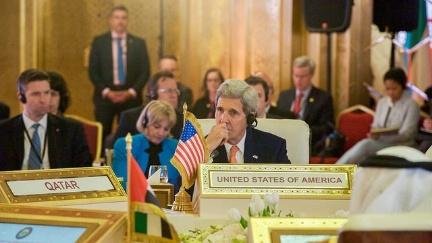DOHA , Qatar, Aug. 4 (UPI) -- Ministers of Persian Gulf countries approved the nuclear agreement with Iran after meeting in Doha, Qatar, with U.S. Secretary of State John Kerry.
Speaking at a press conference with Kerry Monday, Qatari Foreign Minister Khalid al-Attiyah commented, "This was the best option among other options. We are confident that what they undertook makes this region safer and more stable. He let us know that there is going to be live oversight over Iran not to gain or to get any nuclear weapons. This is reassuring to the region."















